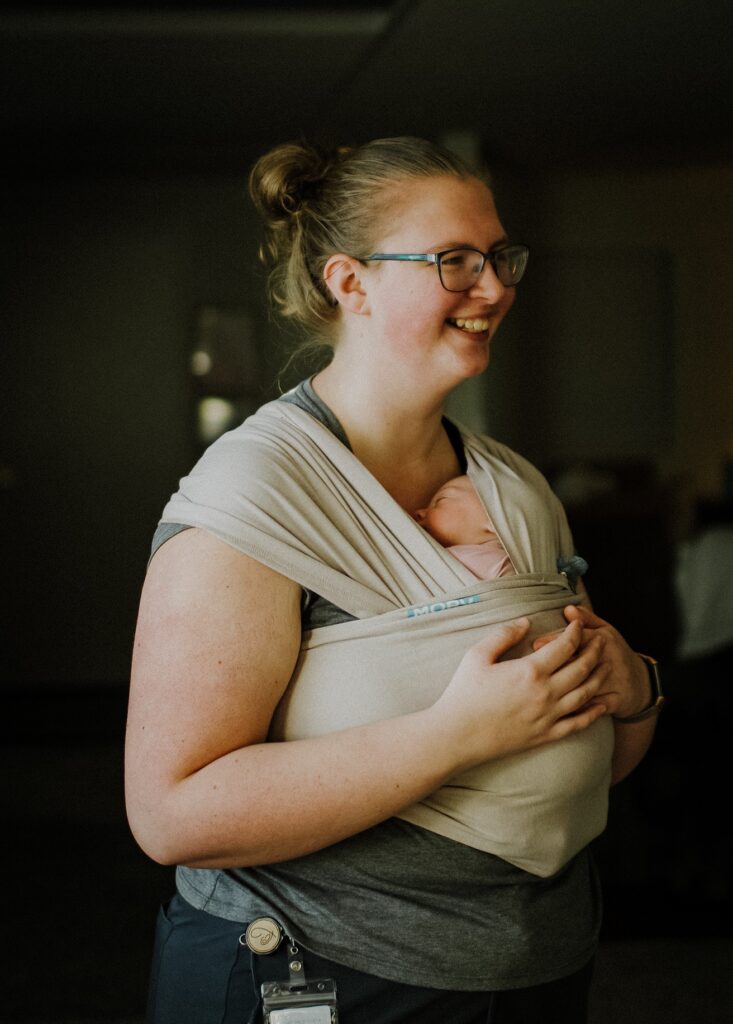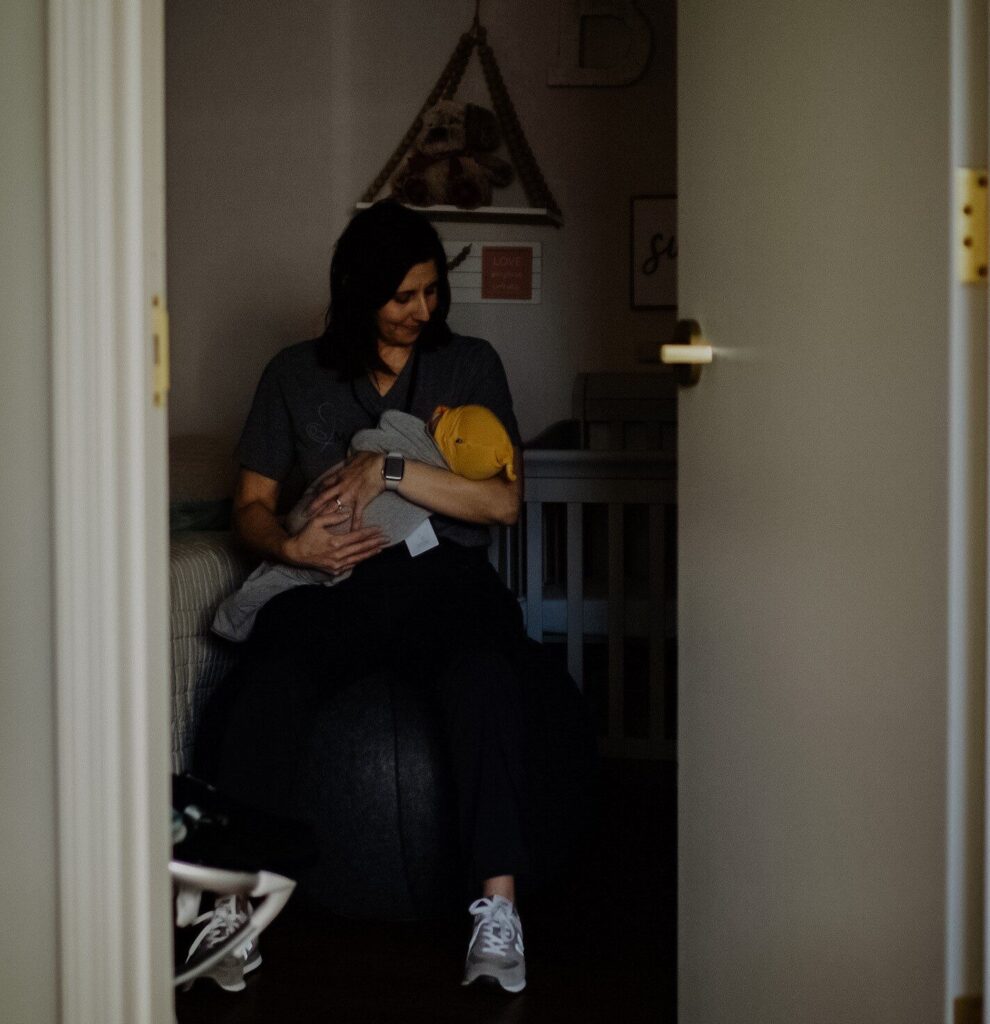The steady gaze of an infant’s eyes in my own is nothing short of a celebration. I mean, it’s exciting when any baby meets your eyes and offers a smile. However, for a baby with neonatal abstinence syndrome (a term describing the onset of symptoms a baby experiences due to prenatal substance exposure) things aren’t so cut and dry. While a baby who has not been exposed to substances can make and hold eye contact immediately after birth, a baby with NAS often cannot achieve this feat for several weeks, and even then, it is only for short periods of time. This is because maintaining eye contact overstimulates their brains. Neurologically, they experience dysregulation in many areas that should come naturally.
So, it’s milestones like eye contact or a smile that make my role as an infant care specialist (ICS) very rewarding. We have the privilege of meeting these babies where they are at in the height of their withdrawal to help them towards a healthier future. Something as simple as snuggling a baby, allowing them to hear your heartbeat and relax in your embrace, can play a vital role in their recovery. It’s life changing all around.
Being an ICS has challenged me in a way that most other jobs cannot. In speaking with my coworkers, we can all agree that one of the biggest challenges in this unique line of work is the emotional toll that caring for these babies takes on our hearts.
This is because a baby thrives in their recovery when their caregiver is willing to bond with them. And in situations where their biological parents are not in the picture, these babies only have us. Let me explain what I mean.
It can be easy to fall into the mentality that Maddie’s Place is just another job. Especially when it may feel like you are doing the same things day after day: snuggle, diaper change, feeding, chores, repeat.
But if that’s all the caregiver puts their mind to, a baby will feel that emotional separation. They can sense that distance.
However, if a caregiver opens their heart up in a vulnerable way to these newborns, putting their needs first, these babies’ lives are changed for the better.

Before I was an infant care specialist, I worked as the receptionist, and during that season, I always itched to love on a baby from up front. And occasionally, when the nursery needed an extra hand, I got to snuggle a baby in a wrap while I went about my other tasks. It was an experience like no other.
However, when one of these babies would cry in my arms, and appear inconsolable, it was difficult not to panic. I did not have the tools to care for these babies with NAS, and it was heartbreaking!
When I started as an ICS, I learned all the tips and tricks for consoling babies with NAS. It was this intentional care that seemed to be one of the reasons why an attachment would grow between a caregiver and a baby. Because the more time I spent with a baby, working hard to console them and keep myself calm, the closer I felt to them. So, in the end, it was the patient consoling of a baby, the area that had proved most challenging to me, that created deep attachment. Here’s an example.

There was one baby girl who I formed a bond with recently. When she came to Maddie’s Place, she was having a tough time regulating her emotions and was overstimulated easily.
One shift, a coworker passed her off to me as they were leaving, and it happened that I got to care for her all day. It was not easy, and this baby girl had a loud cry. But I stuck with her, using all the consoling methods I could remember. Soon, her body would relax to my heartbeat, my gentle bouncing, and my cheek against hers.
After spending the whole day with her, observing how she ate, how she got upset, how she calmed down, I knew I wanted to be with her for my following shifts, so I could continue to learn her needs. And so, an attachment formed.
Earlier, I mentioned that the hardest part of the job was the emotional toll that caring for these babies took on our hearts. So, what is difficult about bonding with a baby at Maddie’s Place? It all sounds so special, I’m sure.
It is special. But it hurts when they leave.
Don’t get me wrong, we celebrate when a baby is healthy enough to go home with their biological parents in recovery, or a loving foster family. But on the other side of this, it’s difficult to say goodbye to someone you have spent countless hours caring for. So, some tears might be shed when a baby leaves. But they are a good kind of tears. They are tears that know they have made a difference in the world through this one baby’s changed life. They are tears that know that, while a baby will never remember their time at Maddie’s Place, they will forever have a special place in the hearts of those present in the beginning stage of their life. And for that, we will keep our hearts open.
PHOTOS BY WILLOW TREECE PHOTOGRAPHY
Questions? Suggestions? Email me at emma.jones@maddiesplace.org
This blog was posted on April 19, 2024.
